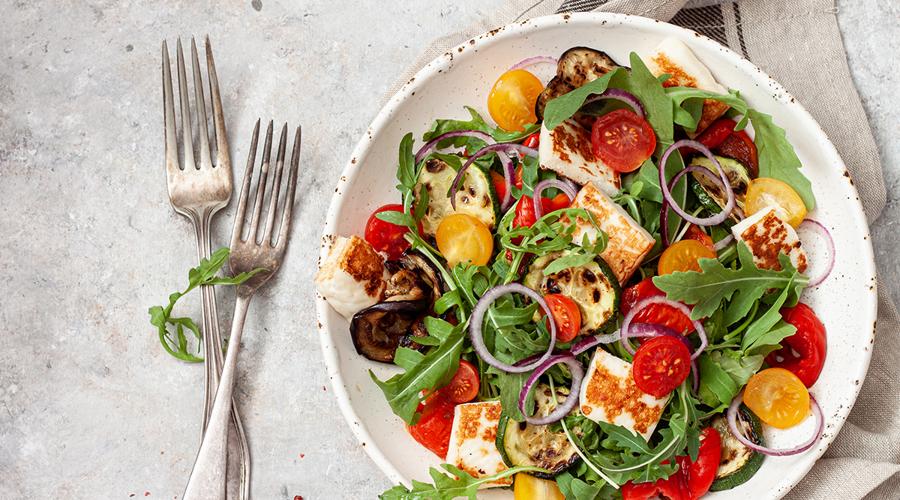In today’s world, where diet trends are constantly changing, two popular eating plans that have stood the test of time are the Paleo and Mediterranean diets. While both emphasize the importance of whole, unprocessed foods, they differ significantly in their approach and food choices. The Paleo diet focuses on consuming foods that were available to our ancestors in the Paleolithic era, such as meat, fish, fruits, and vegetables, while excluding grains, legumes, and dairy.
On the other hand, the Mediterranean diet is inspired by the traditional eating patterns of countries bordering the Mediterranean Sea, emphasizing plant-based foods, lean proteins, healthy fats, and moderate amounts of dairy and whole grains. In this blog post, we will delve deeper into the similarities and differences between these two diets, the potential health benefits and drawbacks, and help you decide which one might be the best fit for you. So, whether you’re a health enthusiast looking to switch things up or someone simply curious about these popular eating plans, read on to learn more!
Benefits of Paleo Diet
- Weight loss: The Paleo diet emphasizes lean proteins, fruits, vegetables, and healthy fats while limiting processed and high-calorie foods. This can lead to weight loss and improved body composition.
- Improved blood sugar control: By avoiding refined sugars and carbohydrates, the Paleo diet can help regulate blood sugar levels and prevent insulin resistance.
- Reduced inflammation: The Paleo diet eliminates processed and inflammatory foods, which may reduce inflammation in the body and lower the risk of chronic diseases like heart disease and arthritis.
- Better gut health: The emphasis on whole, unprocessed foods in the Paleo diet can promote a healthy gut microbiome, leading to improved digestion and overall health.
- Increased nutrient intake: The Paleo diet includes a variety of nutrient-dense foods like fruits, vegetables, and high-quality protein sources, which can help ensure adequate nutrient intake and support optimal health.

Drawbacks of Paleo Diet
Restrictive
The Paleo diet eliminates entire food groups like grains, legumes, and dairy, which may be challenging for some people to adhere to in the long-term.
Expense
The emphasis on high-quality, grass-fed meats and organic produce may increase grocery bills for those following the Paleo diet.
Nutrient deficiencies
Excluding certain food groups like grains and legumes may lead to nutrient deficiencies if adequate substitutes are not included in the diet.
Limited carb intake
The low-carb nature of the Paleo diet may be difficult for athletes or those with high energy needs to sustain their energy levels.
Risk of consuming too much protein
The Paleo diet emphasizes protein-rich foods like meat, which can lead to excessive protein intake and strain on the kidneys in some individuals.
Tips of Paleo Diet
- Focus on whole, unprocessed foods: Choose grass-fed meats, wild-caught fish, organic produce, and healthy fats like olive oil, avocados, and nuts.
- Avoid processed and refined foods: Stay away from processed foods, refined sugars, and artificial ingredients.
- Include plenty of vegetables: Vegetables should make up a significant portion of your diet. Focus on colorful, non-starchy vegetables like broccoli, spinach, kale, and bell peppers.
- Incorporate healthy fats: Healthy fats like olive oil, coconut oil, and avocado can help keep you feeling full and satisfied.
- Choose high-quality protein sources: Opt for grass-fed meats, wild-caught fish, and free-range poultry to ensure you’re getting high-quality protein.
- Experiment with Paleo-friendly substitutes: There are plenty of Paleo-friendly substitutes for grains and dairy, like almond flour and coconut milk, that can help you recreate your favorite dishes.
- Stay hydrated: Drink plenty of water throughout the day to stay hydrated and support optimal health.

Benefits of Mediterranean Diet
- Reduced risk of heart disease: The Mediterranean diet emphasizes heart-healthy foods like olive oil, nuts, fish, and fruits and vegetables, which may help lower the risk of heart disease.
- Improved blood sugar control: The Mediterranean diet includes whole grains, fruits, and vegetables, which can help regulate blood sugar levels and prevent insulin resistance.
- Lower risk of certain cancers: The high intake of fruits, vegetables, and whole grains in the Mediterranean diet may lower the risk of certain cancers, such as colon, breast, and prostate cancer.
- Better brain health: The Mediterranean diet includes plenty of healthy fats like olive oil and nuts, which may improve brain function and reduce the risk of cognitive decline.
- Improved gut health: The Mediterranean diet includes plenty of fiber-rich foods like fruits, vegetables, and whole grains, which can promote a healthy gut microbiome and improve digestive health.
Drawbacks of Mediterranean Diet
May be high in calories
Some Mediterranean diet staples like olive oil and nuts are high in calories, which may make it difficult for some people to lose weight.
Cost
Some Mediterranean diet foods, such as fish and fresh produce, can be expensive, which may be a barrier for some individuals.
Limited protein sources
The Mediterranean diet emphasizes fish and lean meats like chicken and turkey, which may not provide enough protein for individuals with higher protein needs.
Limited dairy intake
The Mediterranean diet includes limited dairy intake, which may be a concern for individuals who require higher amounts of calcium and vitamin D.
Alcohol consumption
The Mediterranean diet includes moderate alcohol consumption, which may not be appropriate for everyone, particularly those with a history of alcohol abuse.

Tips of Mediterranean Diet
- Eat plenty of fruits and vegetables: Make sure to include a variety of colorful fruits and vegetables in your diet, as they provide important nutrients and antioxidants.
- Choose healthy fats: Focus on healthy fats like olive oil, nuts, and avocados instead of saturated and trans fats.
- Include lean proteins: Opt for lean proteins like fish, chicken, and turkey, as well as plant-based sources of protein like legumes and nuts.
- Incorporate whole grains: Choose whole grains like whole wheat, quinoa, and brown rice instead of refined grains.
- Limit processed foods: Avoid processed foods, refined sugars, and artificial ingredients as much as possible.
- Use herbs and spices for flavor: Herbs and spices can add flavor to dishes without adding extra salt or calories.
- Enjoy meals with others: The Mediterranean diet emphasizes enjoying meals with family and friends, which can promote social connection and overall well-being.

In conclusion, both the Paleo and Mediterranean diets have their unique benefits and drawbacks. The Paleo diet emphasizes whole, unprocessed foods that were available to our ancestors during the Paleolithic era, while the Mediterranean diet is based on the traditional dietary patterns of countries bordering the Mediterranean Sea. While the Paleo diet may offer potential benefits like weight loss and improved blood sugar control, it may also be restrictive and expensive for some individuals. The Mediterranean diet, on the other hand, may offer benefits like improved heart health and better brain function, but may be high in calories and limit protein and dairy intake. Ultimately, the best diet for you depends on your personal preferences, lifestyle, and health goals. Consider consulting with a healthcare professional or registered dietitian to determine which diet may be the best fit for you.

